Silence
"It is clear there is an intent to destroy the Palestinians in Gaza through acts that meet the criteria set forth in the Genocide Convention." United Nations Human Rights Council
My Dad turned 89 the other day.
He lives with my Mom in an assisted living facility in southern California. They moved there earlier this year. They had resisted making the move, because it represented a loss of sovereignty, so to speak. But my Mom, who is 91, has mobility issues, and my Dad, who suffers from dementia, was no longer able to safely drive her to her many medical appointments. So, he turned over his car keys, and they moved out of the home they had lived in for the past two decades, and into the small apartment where they will finish out the rest of their lives.
Born in 1936, my Dad is part of what they call “The Silent Generation”, that segment of American society born in the difficult period of American history that stretched from the Great Depression through the Second World War. He came of age at a time when Rock and Roll swept America, but instead of the Beatles and Elvis our home resonated with the songs of Johnny Cash and The Tijuana Brass.
My Dad was a career Air Force officer, and as such was theoretically apolitical. A registered Republican, my Dad named our first dog, a beautiful Weimaraner, Barry Goldwater, in honor of the conservative politician whose candidacy for President he supported back in 1964. I don’t know if he was a member of the John Birch Society or just debated their politics with my Mom around the kitchen table. But I do know he was cut from a very conservative piece of cloth.
In 1967 my Dad was sent off to Squadron Officer’s Course, the Air Force’s career course for Captains, located in Maxwell Air Force Base, outside Montgomery, Alabama. My Mom was pregnant with what would become my third sister at the time. There was no base housing available, so we lived in a rented apartment in a less-than-affluent part of the city.
Montgomery was not just the capital of Alabama, but also the first capital of the Confederacy. It was also the home of Rosa Parks and Martin Luther King, Jr., who preached his message of civil rights and equality from the Dexter Avenue Baptist Church. But Alabama in 1967 was still the land of “Bull” Conners, the notorious white racist, and while the buses of Montgomery might have been desegregated, the sickness of institutionalized racism remained pervasive.
This reality came crashing home one summer night in 1967. There was no air conditioning, so my parents left the windows of our little second story apartment open in hopes that what passed for a breeze could somehow cut through the sticky humid air of a hot Alabama night. We were all tucked in our beds when the silence of the evening was broken by the shrill cries of a lady in distress. I remember my Dad jumping to his feet, looking out the window, and then throwing on a pair of pants and a t-shirt as he sprinted out the door, telling my Mom to “call the police.”
While my Mom dialed the phone, I ran to the window and looked outside. Below our apartment, underneath the dull yellow glow of a corner streetlight, two white men were struggling with a black lady. My Dad burst out of the apartment building just as the men gained control of the lady’s purse. With the object of their desire in hand, the men ran off down an alley way. My Dad checked if the lady was ok and then sprinted off after the two men. In his rush to leave the apartment, my Dad had not put on any shoes, and so he was barefoot as he entered an alley full of garbage and broken glass.
The Montgomery police arrived on the scene in short order, the flashing cherry red light of their patrol car casting eerie shadows in a street that was empty save for a single black lady standing on the corner, crying. The police, who had taken a call from a white woman they believed was in distress, were disappointed to find that they had instead come to the assistance of a lady of color. Just after the police arrived, my Dad came limping out of the alley, the lady’s purse in hand—the two muggers had dropped it when they realized they were being pursued.
The black lady took her purse from my father and examined its contents. Nothing was missing. My Dad started to describe the two white men who had stolen the purse, but the police cut him off. “Ain’t nothing missing from the purse, so there’s nothing to report.” They sent the black lady on her way. She left, thanking my Dad before she walked off into the night.
The police then sized up my Dad, who was insistent that a report be filed. Once they found out that he was an Air Force officer stationed at Maxwell, their tone softened slightly. “You ain’t from around here, so you don’t understand. A white man shouldn’t be sticking his nose in anything involving a Nigger girl. Now just mind your business and go on back to bed.”
Back in the apartment, my Mom tended to my Dad’s feet, which had been cut to shreds by the glass in the alleyway. I remember my Dad looking at me and my two sisters. “If someone is crying for help,” he said, “you have a duty to respond. It doesn’t matter who they are. Or what color their skin is.”
That lesson stuck with me for the rest of my life.
I listened to my Dad’s voice over the phone as we wished him a happy birthday. It was the voice of an old, frail man. But when I close my eyes, I can still see my Dad, in the prime of his life, and hear the strength that resonated in his voice that night.
You see, “The Silent Generation” wasn’t so silent after all.
I watched a video on my cell phone the other day. It showed an Israeli bomb striking a building in Gaza. After the sound of the blast diminished, you could hear the screams and cries of the people trapped inside the flaming rubble as they burned to death.
That sound haunts me, just like the sound of little Hind Rijab’s voice as she cried for someone to come and help her in the last minutes of her life, which was tragically cut short when an Israeli tank opened fire on the car where Hind Rijab sat, surrounded by the dead bodies of her Aunt, Uncle and cousins. Her last words hit the hardest. When asked by a Palestinian medic why she wasn’t speaking, Hind replied, “I’m not talking because every I talk blood comes out of my mouth and makes my clothes dirty and I don’t want my Mom to have to clean it.”
The Israelis fired 335 bullets into the car carrying Hind and her relatives.
The sound of this gunfire can be heard on the audio of the incident.
And yet the world is silent.
There is a literal genocide in Gaza taking place before the eyes of the world.
The people of Gaza are crying out for help.
And no one is doing a damn thing.
I often think what it must have been like to be a Pole in Warsaw in 1942-43, during the liquidation of the Warsaw Ghetto. To walk with your family in the historic Saxon Gardens (Saski Park), pretending not to hear the mass murder taking place a few hundred meters away.
In October 1940 the German authorities sealed off an area in downtown Warsaw that housed approximately 400,000 Jews. In the summer of 1942, the Germans began a series of mass deportations, evicting some 265,000 Jews from the Warsaw Ghetto to the Treblinka concentration camp. Around 35,000 Jews were killed in the Warsaw Ghetto during this time. By early 1943, there were only 70,000 to 80,000 Jews left inside the ghetto.
In January 1943, Jewish resistance to efforts by the Germans to deport the remaining Jews of the ghetto broke out. In April 1943, the Germans dispatched thousands of SS soldiers and paramilitary auxiliaries to Warsaw, where they began the systematic destruction of the Warsaw Ghetto. This violence took place over the course of a month. Entire city blocks were blown up and burnt down during this time. Some 7,000 Jews were killed in this fighting, and another 7,000 captured. Eventually the resistance collapsed, and the surviving 42,000 Jews were rounded up and sent off to various concentration camps, where most perished.
The citizens of Warsaw knew that the Germans were carrying out mass murder, and they went about their lives as if nothing was happening.
They were silent.
This silence echoes today as the world watches the progeny of those who perished in the Warsaw Ghetto carry out a modern-day reenactment of that mass murder, only this time it is the citizens of Gaza who are being systematically rounded up and murdered by the Israeli military.
There is no other way to describe what the Israelis are doing other than genocidal ethnic cleansing.
This is a war crime of unimaginable proportions taking place right before the collective eyes of the entire world.
Silence.
The civilians of Gaza are literally scraping the dead bodies of their relatives off the rubble of the buildings they once called home, but which are now being leveled by the Israeli military in a manner reminiscent of the destruction of the Warsaw Ghetto.
Silence.
Hundreds of children’s bodies are being discovered, killed by a single bullet to the head fired by Israeli snipers.
Silence.
I walk through my sleepy suburban neighborhood, where many families have placed signs in their yards that read “We stand with Israel.”
They might as well read “We stand for Genocide.”
I imagine what the public response would be if the signs read instead, “We stand for the lynching of Blacks.”
Because it is the same sentiment, only disguised by language that hides the awful truth of what is transpiring.
Israel is the “Bull” Conner of the Middle East, and the civilians of Gaza are the modern-day equivalent of the Black lady who cried out for help on the streets of Montgomery, Alabama nearly six decades past.
It took a member of “The Silent Generation” to rally to that lady’s cause, ignoring the racism that dominated the times.
Because her cries for help could not be ignored.
Who among us will rally to the cause of Gaza today?
Who will brave the blatant racism of the Zionists who have infiltrated the very fabric of American society today—just as the blatant racism of “Bull” Conners had infiltrated the fabric of Alabama society in 1967—to come to those in need?
Are we going to be the silent Poles who strolled through the Saxon Gardens while murder took place beyond the walls that separated them from the Jewish ghetto?
Because racist-driven genocidal murder is taking place right now, in Gaza.
We know it.
We just opt to do nothing about it.
My Dad knew what to do when he heard a cry for help.
Do we?
We condemn ourselves with our collective silence, while a six-year old girl fears to speak less the blood that spills from her punctured lungs soils the dress her mother had so lovingly clad her in.
Hind had a reason to remain quiet.
We don’t.


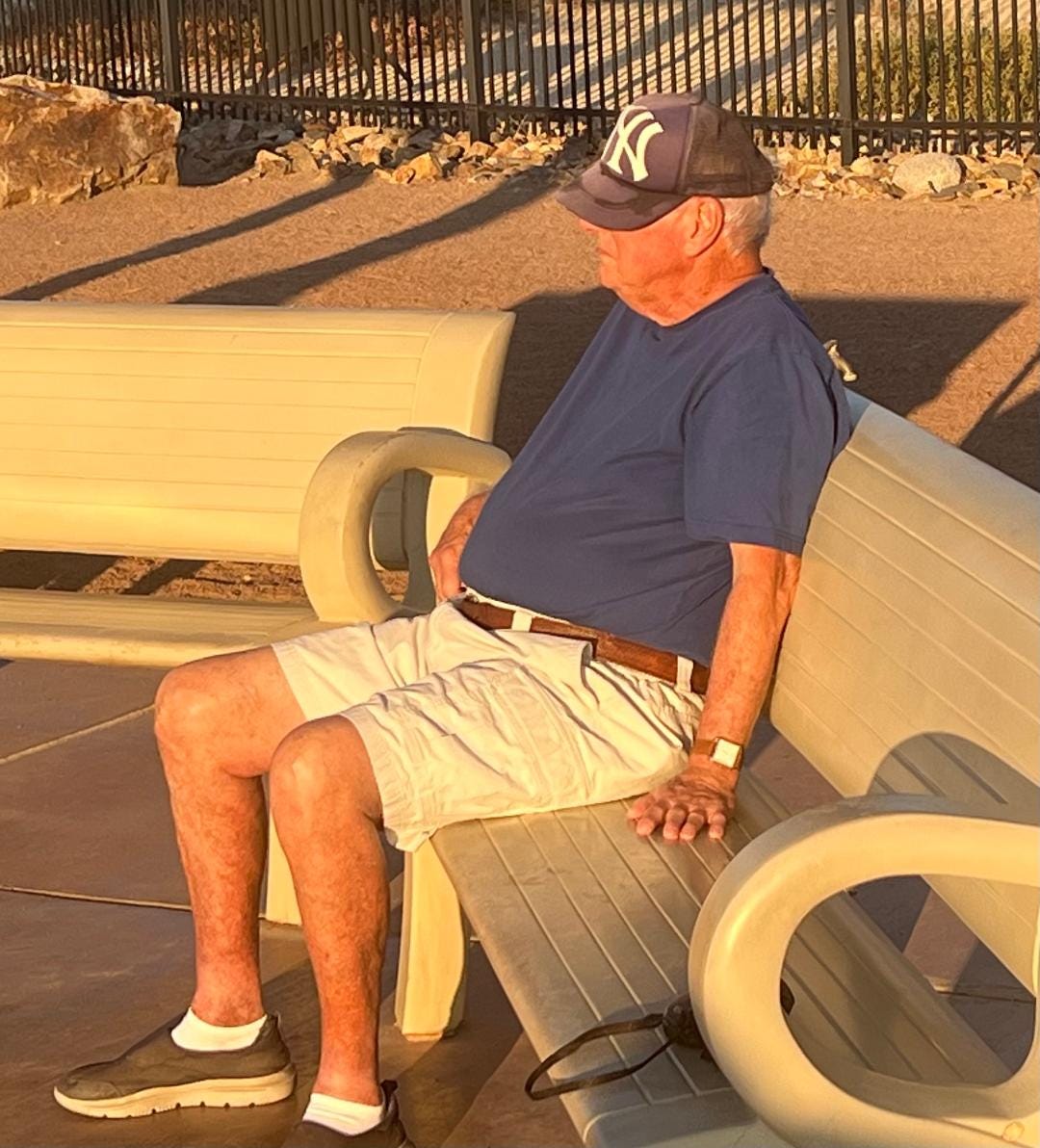
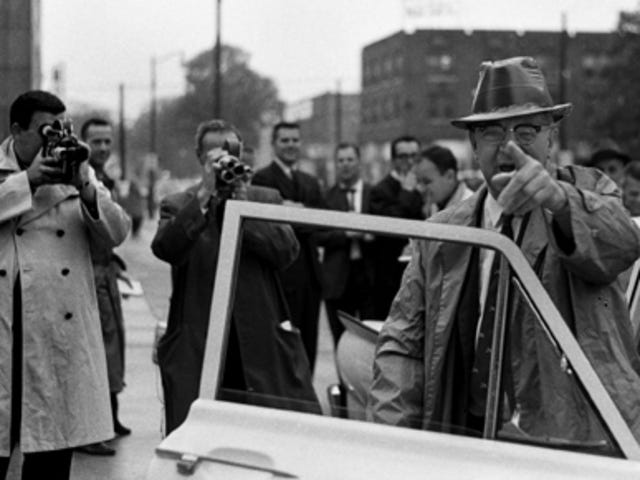
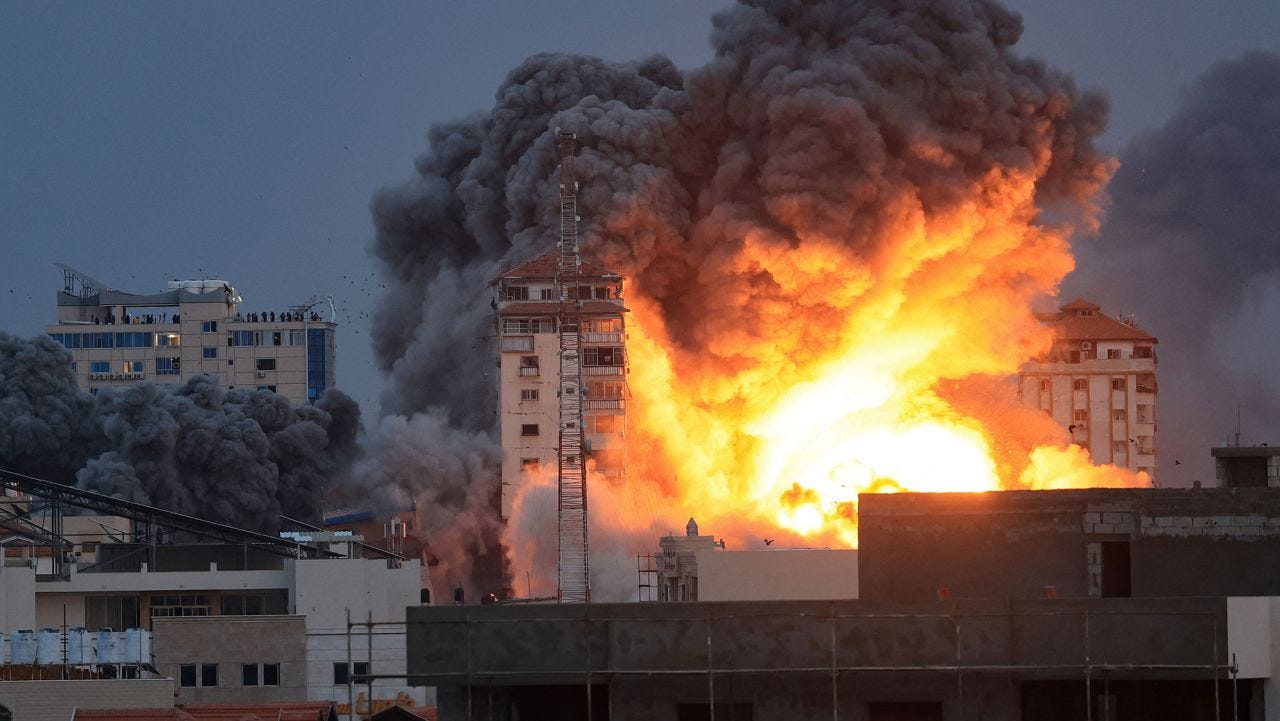
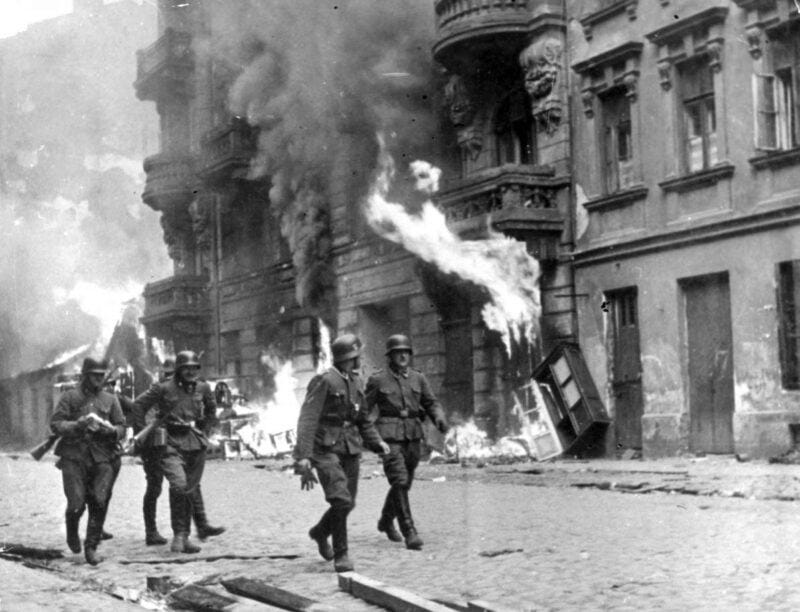
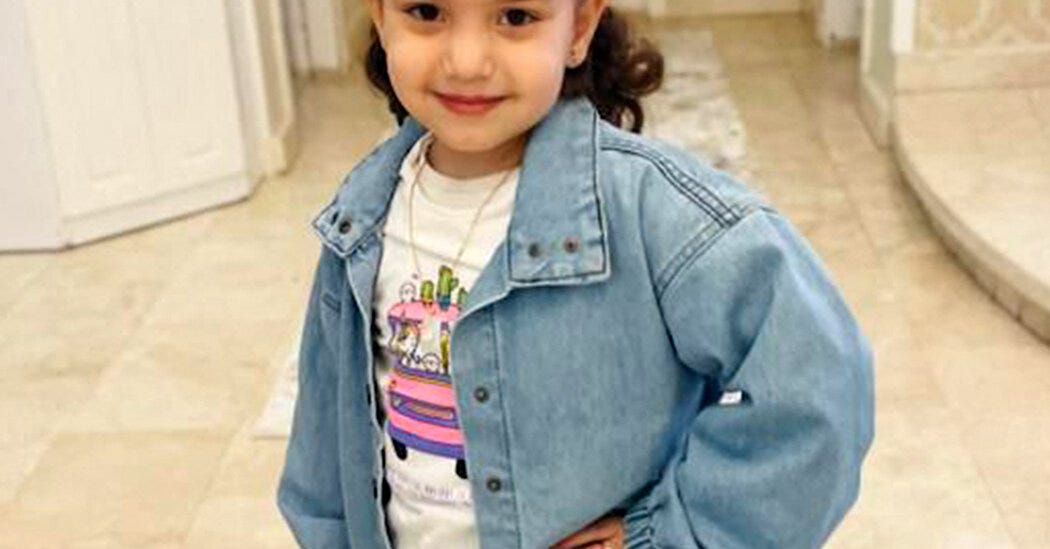
Scott: your father is an inspiration. Thank you for following his footsteps.
The world needs many men like you, like your Dad.
I constantly feel the hopelessness and the helplessness over Gaza. It haunts me daily.
God bless you and your work.